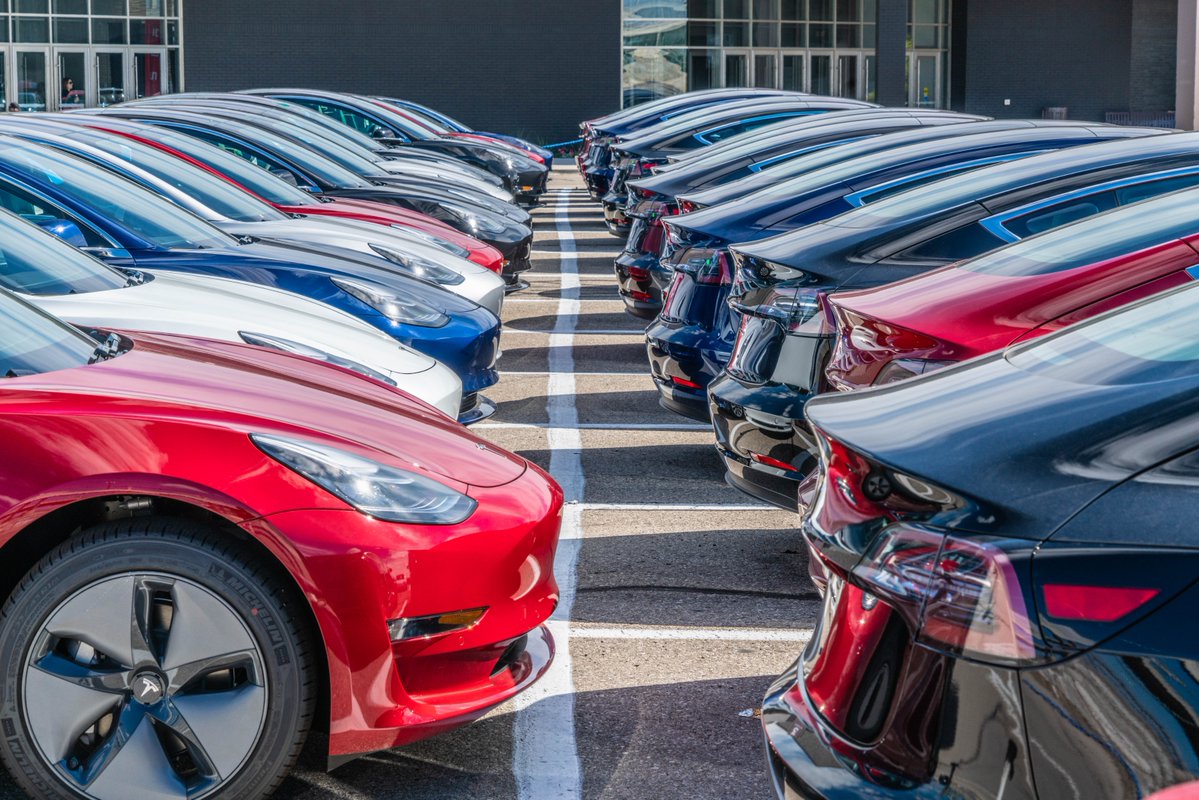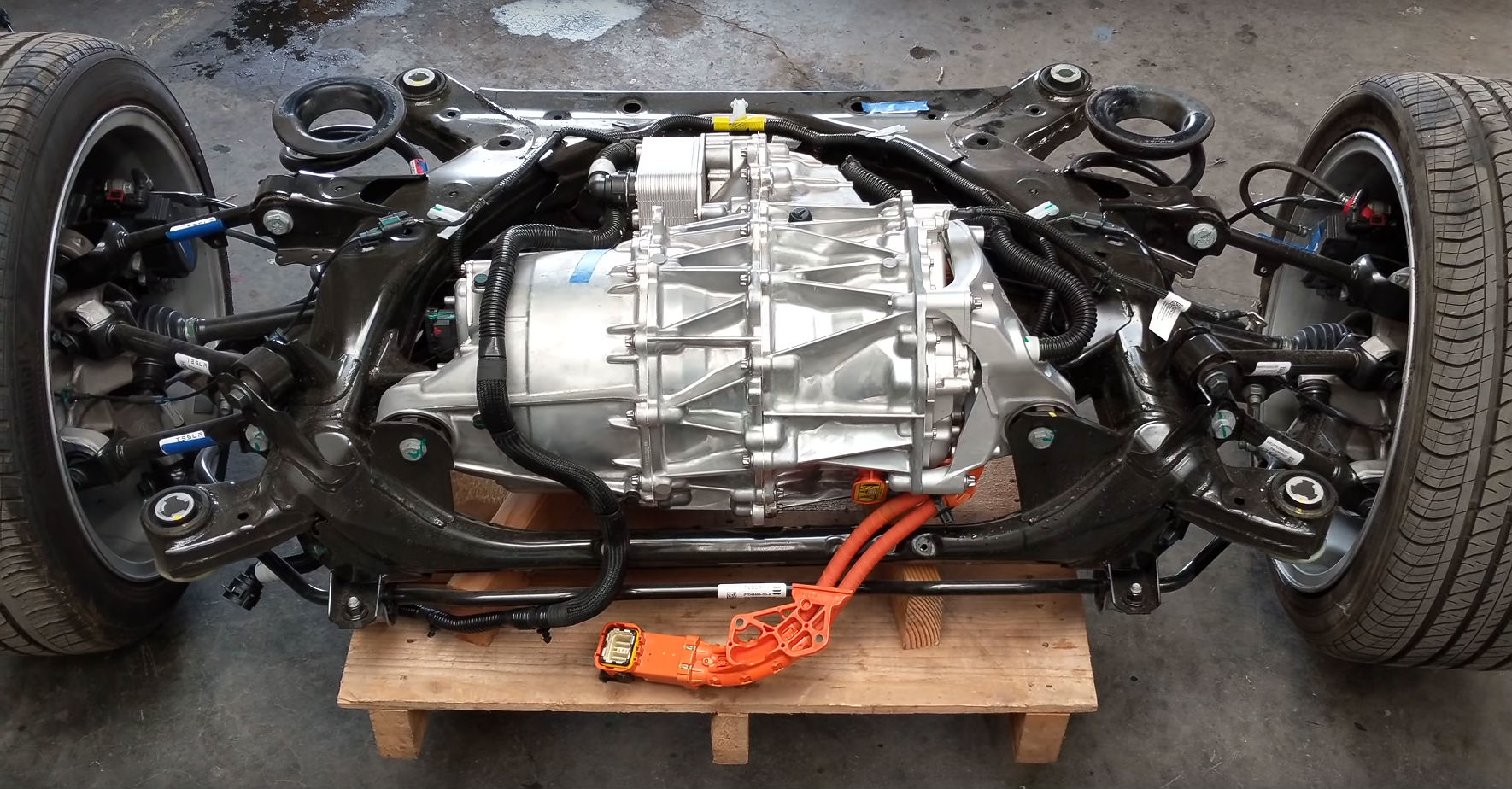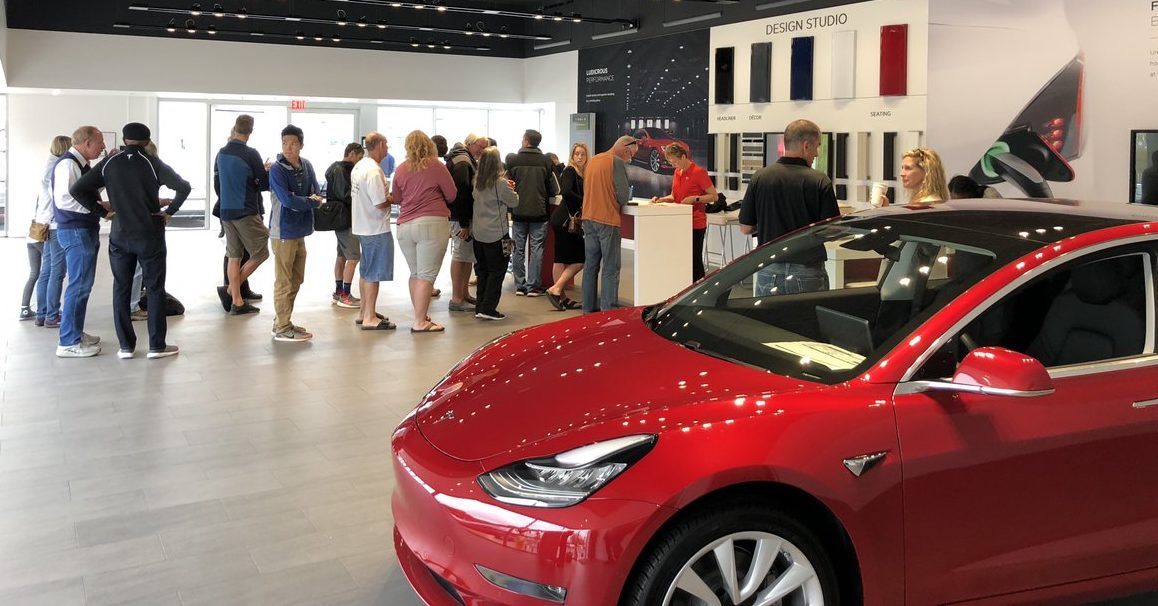

News
Tesla is building an empire with Model 3 drive units, custom chips, and loyal customers
When the Tesla Semi and the next-generation Roadster were unveiled last year, Elon Musk pointed out that the whole company was built on the original Roadster, an electric car which proved that EVs could be exciting, fun, and quick. Tesla is now at a point where it could become a threat to established premium automakers; and just like how Apple built a trillion-dollar empire on the back of the iPhone, Tesla seems poised to establish its own empire through its Model 3 drive units, its custom-made chips, and its passionate consumer base.
The brilliance of the Model 3’s drive unit was recognized by Detroit veteran Sandy Munro, whose company conducted a thorough teardown and analysis of the electric sedan. While Munro noted some points for improvement with regards to the vehicle’s chassis, he was incredibly impressed with the car’s suspension, batteries, and electric motor. Recently relating his findings to Bloomberg, Munro noted that the Model 3’s electric motor is a “game changer,” and that “everyone should be benchmarking (it).” The entire subframe where the drive unit is housed even detaches cleanly from the Model 3, seemingly allowing DIY enthusiasts in the future to resurrect drive units from damaged vehicles by using them for electric car conversions.
Tesla recently shared images of the Model 3’s drive system after being tested for over 1 million miles. Images of the drive system’s gears suggest that there was very little wear and tear despite extensive testing. With this in mind, Tesla’s idea of using the Model 3’s drive unit to power upcoming vehicles like the Semi and the Model Y, or possibly even the Tesla Truck and the upcoming compact car, could pay off in spades for the company. If teardowns of the Model 3 are any indication, after all, the electric car’s drive unit could very well be reliable, easy to manufacture, and even swappable if the need arises. It could, in a way, be a building block in Tesla’s emerging empire.

Beyond the Model 3’s drive units, Tesla is also starting to dip its feet into creating its custom chip. Such a strategy is very much in line with Tesla’s character, considering that the company already manufactures many of its vehicles’ components in-house. In an interview with Yahoo Finance last week, ARK Invest CEO and CIO Cathie Wood noted that the electric car maker’s initiatives towards the creation of its own hardware are a “replay of Apple.” Wood notes that in the same way Apple’s innovations with the iPhone pushed the tech giant to create its own silicon, Tesla’s progress with the intelligent tech in its vehicles are driving the electric car maker to design and build its own chips.
“This is a replay of Apple. Apple was moving so fast with the smartphone that it had to design its own chip to move that fast. This is what has happened to Tesla. Nvidia chips will be in mostly every other autonomous vehicle to hit the market. But Musk has a vision for this market that needs (a) faster, better, cheaper, sooner (solution) – and so he designed it himself,” Wood noted.
Elon Musk is optimistic about the potential of Tesla’s custom silicon. Designed by a team led by Pete Bannon, who used to work for Apple, Musk noted that Tesla’s custom hardware would be ” the world’s most advanced computer designed specifically for autonomous operation.” This custom chip, which would be included in Tesla’s Hardware 3, will be rolled out to all production cars in around six months; and if Tesla’s other in-house solutions are any indication, the introduction of its upcoming silicon would likely allow the company to establish a lead against rival automakers who are also dabbling in self-driving initiatives.

While Tesla’s vehicles and their components make the company a formidable player in the car industry, it is perhaps its dedicated consumer base that makes Tesla downright threatening to traditional auto. It is quite rare to see a car company command such a devoted following, though considering Tesla’s stance in the auto industry today, the strong brand loyalty displayed by Tesla owners is not very surprising at all. As Tesla grew over the years, after all, the company has practically transformed itself into an entity that is far more than a carmaker or a battery storage provider. Tesla has become a movement of sorts, populated by electric car owners who are willing to pay it forward when needed. This was shown in the final weeks of Q3, when owners mobilized to help the company deliver as many vehicles as it could before September ended.
The Tesla community’s dedication to the company’s mission and vision were in full force earlier this month as well, as 36 Tesla Owner’s Clubs from nine countries convened in Fremont, CA to meet and strategize initiatives that can help support the growing number of electric car owners across the globe. Denver Tesla Club President Sean M. Mitchell, who attended the meeting, believes that the source of enthusiasm among electric car owners is multifold. For one, the company was able to integrate technology in a way that made even something as ordinary as driving exciting once more. Sean also notes that the company’s grass-roots marketing approach, which relies primarily on word-of-mouth, fosters a very authentic and honest relationship among owners.
It remains to be seen if Tesla would be succeed in its mission to accelerate the world’s transition to renewable energy. That said, the company’s strategy in its electric vehicle business seems to be working, as legacy carmakers such as Porsche and Jaguar are starting to fully embrace the idea of a zero-emissions fleet. Companies such as Audi and Mercedes-Benz have also begun offering premium electric vehicles of their own. In South Australia, Tesla’s big battery is also triggering a clean energy movement, with similar renewable projects now underway after the Powerpack farm proved to be effective. Ultimately, Tesla’s empire might not be as tangible or evident today, but the components that would make it are already there, steadily growing.
News
Tesla begins Robotaxi certification push in Arizona: report
Tesla seems serious about expanding its Robotaxi service to several states in the coming months.

Tesla has initiated discussions with Arizona transportation regulators to certify its driverless Robotaxi service in the state, as per a recent report from Bloomberg News. The move follows Tesla’s launch of its Robotaxi pilot program in Austin, Texas, as well as CEO Elon Musk’s recent comments about the service’s expansion in the Bay Area.
The Arizona Department of Transportation confirmed to Bloomberg that Tesla has reached out to begin the certification process for autonomous ride-sharing operations in the state. While details remain limited, the outreach suggests that Tesla is serious about expanding its driverless Robotaxi service to several territories in the coming months.
The Arizona development comes as Tesla prepares to expand its service area in Austin this weekend, as per CEO Elon Musk in a post on X. Musk also stated that Tesla is targeting the San Francisco Bay Area as its next major market, with a potential launch “in a month or two,” pending regulatory approvals.
Tesla first launched its autonomous ride-hailing program on June 22 in Austin with a small fleet of Model Y vehicles, accompanied by a Tesla employee in the passenger seat to monitor safety. While still classified as a test, Musk has said the program will expand to about 1,000 vehicles in the coming months. Tesla will later upgrade its Robotaxi fleet with the Cyercab, a two-seater that is designed without a steering wheel.
Sightings of Cybercab castings around the Giga Texas complex suggests that Tesla may be ramping the initial trial production of the self-driving two-seater. Tesla, for its part, has noted in the past that volume production of the Cybercab is expected to start sometime next year.
In California, Tesla has already applied for a transportation charter-party carrier permit from the state’s Public Utilities Commission. The company is reportedly taking a phased approach to operating in California, with the Robotaxi service starting with pre-arranged rides for employees in vehicles with safety drivers.
News
Tesla sets November 6 date for 2025 Annual Shareholder Meeting
The automaker announced the date on Thursday in a Form 8-K.

Tesla has scheduled its 2025 annual shareholder meeting for November 6, addressing investor concerns that the company was nearing a legal deadline to hold the event.
The automaker announced the date on Thursday in a Form 8-K submitted to the United States Securities and Exchange Commission (SEC). The company also listed a new proposal submission deadline of July 31 for items to be included in the proxy statement.
Tesla’s announcement followed calls from a group of 27 shareholders, including the leaders of large public pension funds, which urged Tesla’s board to formally set the meeting date, as noted in a report from The Wall Street Journal.
The group noted that under Texas law, where Tesla is now incorporated, companies must hold annual meetings within 13 months of the last one if requested by shareholders. Tesla’s previous annual shareholder meeting was held on June 13, 2024, which placed the July 13 deadline in focus.
Tesla originally stated in its 2024 annual report that it would file its proxy statement by the end of April. However, an amended filing on April 30 indicated that the Board of Directors had not yet finalized a meeting date, at least at the time.
The April filing also confirmed that Tesla’s board had formed a special committee to evaluate certain matters related to CEO Elon Musk’s compensation plan. Musk’s CEO performance award remains at the center of a lengthy legal dispute in Delaware, Tesla’s former state of incorporation.
Due to the aftermath of Musk’s legal dispute about his compensation plan in Delaware, he has not been paid for his work at Tesla for several years. Musk, for his part, has noted that he is more concerned about his voting stake in Tesla than his actual salary.
At last year’s annual meeting, TSLA shareholders voted to reapprove Elon Musk’s compensation plan and ratified Tesla’s decision to relocate its legal domicile from Delaware to Texas.
Elon Musk
Grok coming to Tesla vehicles next week “at the latest:” Elon Musk
Grok’s rollout to Tesla vehicles is expected to begin next week at the latest.

Elon Musk announced on Thursday that Grok, the large language model developed by his startup xAI, will soon be available in Tesla vehicles. Grok’s rollout to Tesla vehicles is expected to begin next week at the latest, further deepening the ties between the two Elon Musk-led companies.
Tesla–xAI synergy
Musk confirmed the news on X shortly after livestreaming the release of Grok 4, xAI’s latest large language model. “Grok is coming to Tesla vehicles very soon. Next week at the latest,” Musk wrote in a post on social media platform X.
During the livestream, Musk and several members of the xAI team highlighted several upgrades to Grok 4’s voice capabilities and performance metrics, positioning the LLM as competitive with top-tier models from OpenAI and Google.
The in-vehicle integration of Grok marks a new chapter in Tesla’s AI development. While Tesla has long relied on in-house systems for autonomous driving and energy optimization, Grok’s integration would introduce conversational AI directly into its vehicles’ user experience. This integration could potentially improve customer interaction inside Tesla vehicles.
xAI and Tesla’s collaborative footprint
Grok’s upcoming rollout to Tesla vehicles adds to a growing business relationship between Tesla and xAI. Earlier this year, Tesla disclosed that it generated $198.3 million in revenue from commercial, consulting, and support agreements with xAI, as noted in a report from Bloomberg News. A large portion of that amount, however, came from the sale of Megapack energy storage systems to the artificial intelligence startup.
In July 2023, Musk polled X users about whether Tesla should invest $5 billion in xAI. While no formal investment has been made so far, 68% of poll participants voted yes, and Musk has since stated that the idea would be discussed with Tesla’s board.
-

 Elon Musk1 week ago
Elon Musk1 week agoTesla investors will be shocked by Jim Cramer’s latest assessment
-

 Elon Musk3 days ago
Elon Musk3 days agoElon Musk confirms Grok 4 launch on July 9 with livestream event
-

 Elon Musk10 hours ago
Elon Musk10 hours agoxAI launches Grok 4 with new $300/month SuperGrok Heavy subscription
-

 News6 days ago
News6 days agoTesla Model 3 ranks as the safest new car in Europe for 2025, per Euro NCAP tests
-

 Elon Musk2 weeks ago
Elon Musk2 weeks agoA Tesla just delivered itself to a customer autonomously, Elon Musk confirms
-

 Elon Musk1 week ago
Elon Musk1 week agoxAI’s Memphis data center receives air permit despite community criticism
-

 Elon Musk2 weeks ago
Elon Musk2 weeks agoTesla’s Omead Afshar, known as Elon Musk’s right-hand man, leaves company: reports
-

 News2 weeks ago
News2 weeks agoXiaomi CEO congratulates Tesla on first FSD delivery: “We have to continue learning!”















